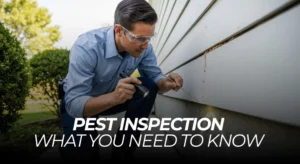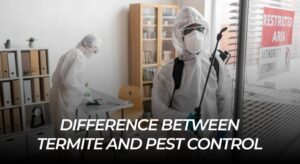RUPs are also known as Restricted Use Pesticides, and they are potent agents in controlling stubborn pests in the field of agriculture and other sectors. The reason behind the unavailability of these products to the general population is not without purpose. Their increased concentration and the type of risks involved necessitate special knowledge to make sure that they are addressed safely and effectively.
This guide gives an all-inclusive account of Restricted Use Pesticides. We will describe them, the certification needed to use them, and the necessary safety measures in the application and storage. Adherence to these guidelines is important in ensuring that individuals, other people, and the environment are not harmed.
What are Restricted Use Pesticides?
A restricted-use pesticide (RUP) is a category of pesticides under the environmental protection agency (EPA) control. These products are found to be more hazardous to human beings, non-target organisms, or the environment than general-use pesticides.
They are sold and used with limitations due to their possible harm. The purchase and application of RUPs are legally limited to certified applicators or persons who are directly under their supervision. This guarantees that individuals who perceive the risks involved and how to reduce them use them.
General vs. Restricted Use Pesticides.
There are two major categories of pesticides, which are known as general use and restricted use. Pesticides that are used for general purposes can be bought by citizens and are regarded as not harmful to use under the instructions on the labels. They are not very concentrated and are less dangerous.
Restricted Use Pesticides, conversely, should be treated as such because they can have a negative impact. The EPA bans a pesticide when it surpasses some toxicity standards or when the usage of the pesticide may lead to unreasonable environmental damage. This is the primary focus of pesticide regulation and safety.
Why Are Some Pesticides Restricted?
A pesticide can be labeled as a “restricted use” when the EPA realizes that it has more dangers than benefits unless it is used under extra safety measures. This categorization may be attributable to one or more reasons that cause the product to be potentially dangerous when not properly utilized.
These considerations may involve high acute toxicity to human beings or animals, the possibility of contaminating groundwater, or endangered species. This limitation of these products by the EPA will only allow individuals who have passed the training and certification courses, and those who know how to use these products safely.
How to Certify to Use RUPs.
RUPs cannot be legally acquired and used without becoming a certified applicator. This is a state-level process that is being controlled according to federal standards developed by the EPA. The certification will help to guarantee that you will possess the required knowledge to deal with these chemicals in a responsible manner.
The initial one is to reach out to the state pesticide regulatory agency. They will give you details of training material, exams, and state-specific requirements. Certification is usually a written examination that tests your knowledge of the safe use of pesticides.
Applicator Certification Types.
Applicator certifications are of two main kinds, which include private applicator and commercial applicator. The kind you require will be determined by the way you want to use the Restricted Use Pesticides.
- Private Applicator: This certificate is given to those who apply or oversee the application of RUPs to manufacture farm produce. This is applicable in the activities on either the property they own or rent or own by the employer. Farmers, ranchers, and greenhouse operators are examples.
- Commercial Applicator: This certification is awarded to a person who uses RUPs to earn money on any land that is not their own. This classification is further divided into subdivisions based on the site of application, such as agriculture, forestry, ornamental and turf, or public health.
The Certification Exam Process.
The certification test will be used to challenge your fundamental skills in safe pesticide handling. To prepare, you will need to read the official training manual provided by the regulatory agency of your state. A great diversity of necessary issues is addressed in these manuals.
The test normally contains questions related to the laws of pesticides, understanding of labels, appropriate application methods, and safety measures. The fact that you have passed this exam is an indicator that you are knowledgeable enough to use RUPs without any undue harm to the environment or to yourself.
Maintaining Your Certification
After you have got your certification, it does not last forever. Applicators are required to renew their certification using continuing education credits or through re-testing on a periodical basis. This will make sure that you are up to date with the newest rules, technologies, and safety measures.
The recertification conditions are different in each state, but, in general, include participation in approved training sessions or workshops. Maintaining your certification is a legal requirement for anyone who wants to remain in the employment of Restricted Use Pesticides.
Important guidelines for safe RUP handling.
The most significant part of the work with RUPs is safe handling. It is always important to begin by reading the label of the product since there are certain instructions and warnings. This label is a legal document, and acting against its instructions is a federal law offense.
Personal Protection Equipment (PPE) cannot be compromised. The label will indicate the minimum PPE needed, which might include chemical-resistant gloves, eye protection, respirators, and protective clothing. With the proper use of PPE, you are greatly minimizing the exposure to dangerous chemicals.
Personal protective equipment (PPE).
Personal protective equipment comes first in line of defense against pesticide contact. The nature of the PPE to use will be dependent on the toxicity and formulation of the product. The label of the pesticides will contain the particular contents required in that product.
General PPE consists of long-sleeved shirts, long pants, chemical-resistant gloves, socks, and closed-toe shoes. In the case of more toxic substances, a respirator, safety glasses or goggles, and a chemical-resistant suit may be necessary. Before use, always check your PPE to make sure it is not damaged.
Proper Storage of RUPs
The storage of Restricted Use Pesticides is important to avoid accidents, contamination, and unauthorized access. Keep pesticides locked and in a well-ventilated place that is not associated with food, feed, or places of habitation.
The storage facility must be well identified with warning labels showing that it contains pesticides. Store containers tightly on the shelf to avoid spills. Spill-containment equipment, such as absorbent clay or pads, should also be easily accessible.
Steps for Safe Application
The use of RUPs is something that needs planning and implementation. Check the weather forecast before you start. One should avoid windy days so that they do not drift, or rainy days when they tend to run into sources of water, when using pesticides.
Select your application equipment and calibrate it so that you apply the right amount of pesticide. Excessive use will kill crops, adversely affect the environment, and inadequate use might fail to control the desired pest. The application rates always change, depending on the label.
Protecting Yourself and the Environment
Safe use of Restricted Use Pesticides is an obligation to safety. As a certified applicator, you can understand the knowledge and skills to deal with these powerful products in the right way. Safety should always be put first; the label must be read, and proper protective gear must be put on. Not only do you ensure that your health is taken care of, but also your community and the environment are taken care of through your diligence.
You can find answers to additional questions or obtain advice at your local extension office or state pesticide regulatory agency. They can give training resources, provide certification inquiries and also give recommendations on the best practices in pest management.







